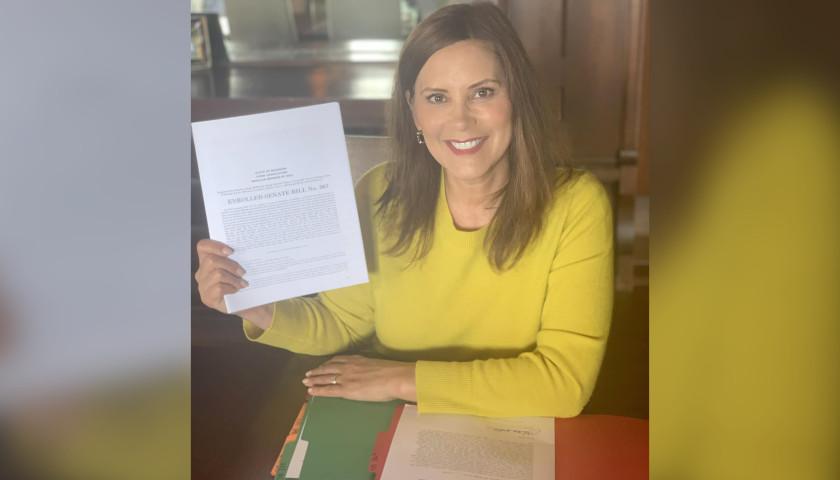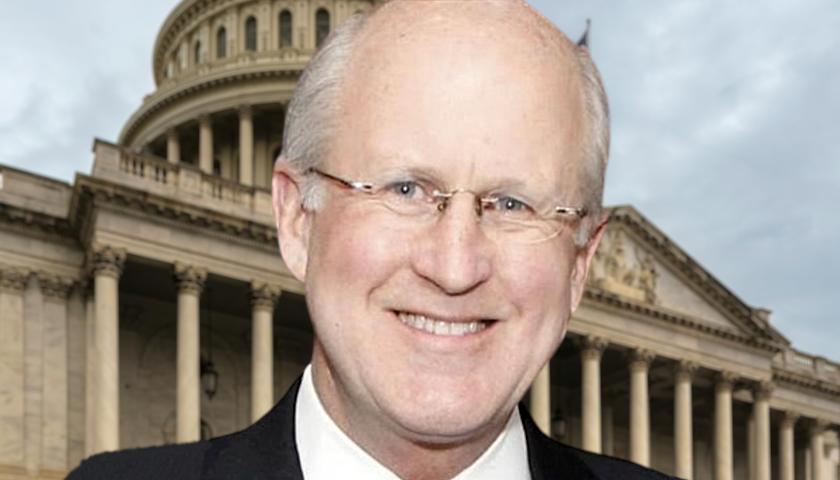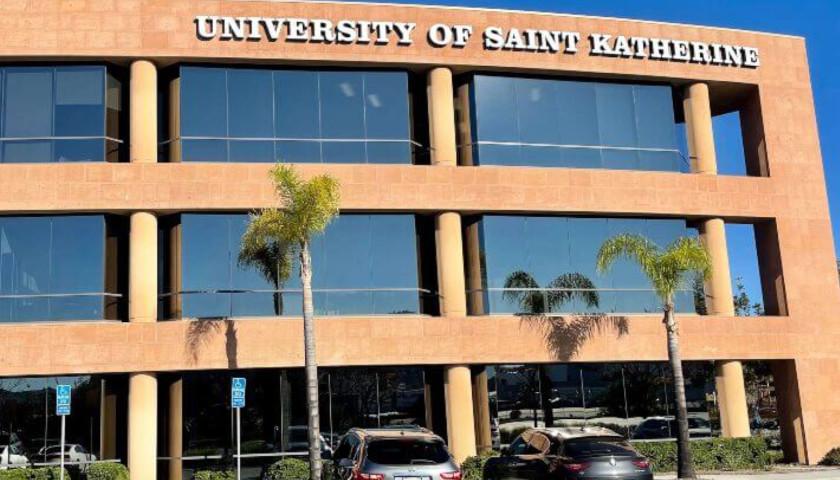by Scott McClallen
Gov. Gretchen Whitmer signed into law a bill package expanding voting rights approved by Michigan voters in November of 2022.
The changes include installing dropboxes for voting, nine days of early voting, pre-paid postage for absentee voter applications and a website to track ballots.
“Voting is the cornerstone of our system of government,” Whitmer said in a statement. “Michiganders spoke with a clear, united voice last November when they voted overwhelmingly in favor of Proposal 2, expanding voting rights.”
House Bill 4697 will require at least one drop box for every 15,000 registered voters in municipalities with more than that many registered voters. These drop boxes will be used to return absentee ballots safely and securely and must be accessible 24 hours a day 40 days before an election and until 8 p.m. on Election Day.
The bills will have “significant costs” for taxpayers, according to the nonpartisan Senate Fiscal Agency. Counting installation, video monitoring, staffing cost, and training costs, each drop box will cost taxpayers about $8,100. The dropbox bill would cost $14.3 million before staffing costs to install 1,800 drop boxes statewide.
Senate Bill 339 will establish a website for Michiganders to track their ballots, which will notify voters when their vote is received and counted and inform them if there are any errors and if so, offer a solution. The Senate Fiscal Agency estimates initial startup costs at $450,000 for two full-time employees, and programming, and equipment costs from 2022-2024, with ongoing costs dropping to $140,000 annually in 2024-2025
SB 367 will require at least nine days of early voting before each statewide and federal election to avoid facing long lines on Election Day. The bill will authorize pre-processing and early tabulation of absentee ballots, aiming to produce a timely result after polls close on Election Day.
SB 370 requires prepaid postage for all absentee ballot applications and envelopes and It also allows voters to fix clerical errors with their ballots.
SB 373 will allow Michiganders to use their US passport, tribal photo ID card, military ID card, or student ID to identify themselves when they show up to vote. They will need to be registered to vote in their precinct to cast a ballot.
HB 4696 will make disclosing an election result from an early voting site before Election Day a Class E felony with a statutory maximum of five years imprisonment.
HB 4699 allows voters to fill out a single application to vote by mail and have a ballot mailed to them in all future elections, which will cost about $5.2 million annually beginning in 2024.
HB 4702 will increase the maximum size of an election precinct from 2,999 active registered electors to 5,000.
Secretary of State Jocelyn Benson welcomed the voting rights expansion.
“This is what it means to have a government that works for the people,” Benson said in a statement. “Last November, Michiganders turned out in record numbers to expand our voting rights. Legislative leaders worked collaboratively with my office, local clerks, and voting rights advocates from around the state to make sure these bills provide the flexibility and resources we need to carry out the will of the voters.”
Whitmer signed the bills into law just before Attorney General Dana Nessel charged 16 false electors with felony charges related to the 2020 election.
– – –
Scott McClallen is a staff writer covering Michigan and Minnesota for The Center Square. A graduate of Hillsdale College, his work has appeared on Forbes.com and FEE.org. Previously, he worked as a financial analyst at Pepsi. In 2021, he published a book on technology and privacy. He co-hosts the weekly Michigan in Focus podcast.
Photo “Gretchen Whitmer” by Gretchen Whitmer.





